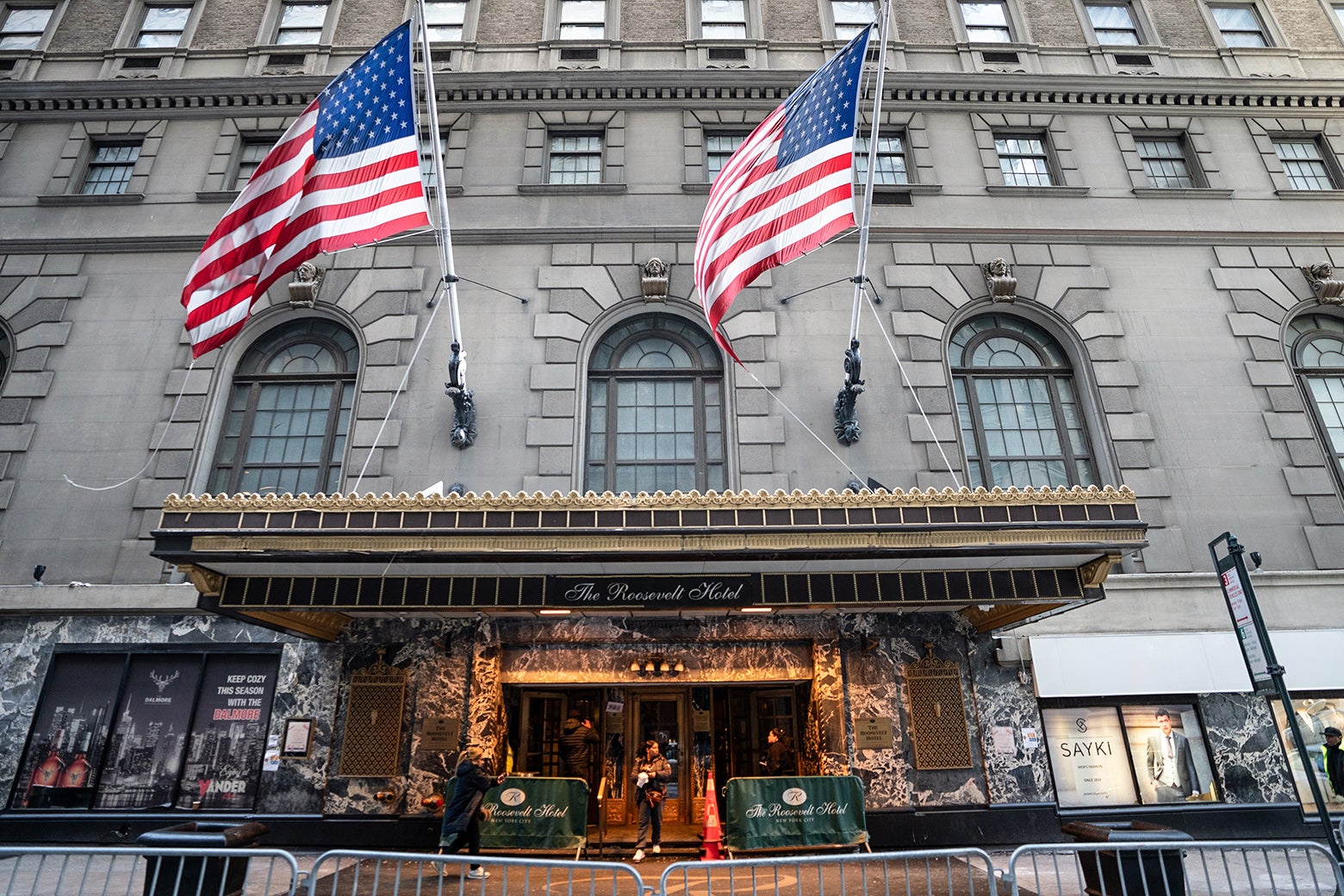UPDATE: The historic Roosevelt Hotel in Manhattan has officially closed its doors as of July 1, 2024, marking the end of a controversial chapter that saw it transformed from a luxurious destination to a migrant shelter. This closure comes amid heated discussions about immigration policies and the ongoing crisis affecting New York City.
On its last day, a small crowd gathered inside the sweltering hotel, with temperatures soaring and no central air conditioning to provide relief. The hotel, which had been a vital shelter for 155,000 migrants since May 2023, now stands empty, its legacy overshadowed by political turmoil and rising tensions surrounding immigration.
New York City Mayor Eric Adams, who announced the hotel’s closure in February, recognized the facility’s troubled history during his farewell address. “Present day may not be kind, but history will be kind,” he declared, despite previously stating that the influx of migrants would “destroy New York City.” His remarks come as 40,000 migrants were bused into the city from Texas under controversial policies initiated by Governor Greg Abbott.
Once referred to as “Little Ellis Island,” the Roosevelt witnessed a staggering number of asylum seekers from over 160 countries pass through its doors. While many viewed it as a lifeline, critics labeled it a breeding ground for crime, citing conservative media narratives that painted the facility as a den of violence linked to gangs.
As families streamed out, carrying their belongings amid the chaos, the facility’s closure left many new arrivals in limbo. One woman, seeking asylum, was turned away in confusion, handed a notice redirecting her to another facility. The hotel’s end comes just as the Biden administration has tightened asylum access, further complicating the situation for those fleeing violence and persecution.
The Roosevelt’s transformation to a migrant shelter was a response to a crisis that began in earnest in 2022 when asylum seekers, facing dire situations in their home countries, began arriving in the U.S. in larger numbers. The political maneuvers surrounding this influx have been contentious, with Adams aligning with Trump on immigration issues while also facing legal challenges regarding New York’s right-to-shelter laws.
As the shuttering of the Roosevelt Hotel closes one chapter, it opens another for developers and investors eyeing the prime Manhattan location. Reports indicate that the site, now valued at a staggering $1 billion, could soon be transformed into luxury office space, capitalizing on the city’s booming real estate market.
This pivotal moment reflects not only the end of the Roosevelt’s role in the migrant crisis but also highlights the ongoing struggle for immigrants seeking safety and stability. As New York City grapples with the fallout from these developments, the impact will be felt for years to come.
As we look to the future, the question remains: what will become of the Roosevelt’s haunting legacy? Will it be remembered as a sanctuary for the desperate or simply a footnote in the ongoing battle over immigration policy in the United States?
